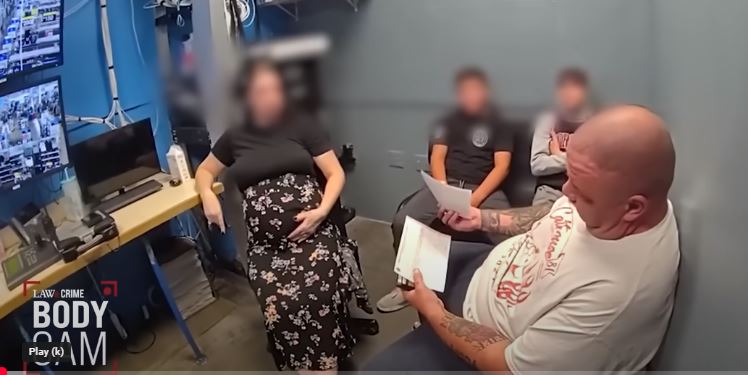Michigan cherishes the Second Amendment, but it’s important to remember that this right isn’t absolute. Certain actions or circumstances can lead to its temporary or permanent loss. Understanding these situations and potential avenues for restoration is crucial for responsible gun ownership.
Losing Your Second Amendment Rights in Michigan:
- Felony Convictions: Committing a felony automatically disarms you under both state and federal law (MCL 750.223c). The types of felonies affecting gun rights vary, encompassing violent crimes, drug offenses, and even some white-collar misdeeds.
- Domestic Violence Convictions: A misdemeanor domestic violence conviction can strip you of your gun rights for three years (MCL 750.223c(1)(c)). While a first-time misdemeanor offense with deferred sentencing might not result in a conviction, it still triggers a gun rights suspension.
- Mental Health Adjudications: Being involuntarily committed for mental illness or deemed a danger to yourself or others can also lead to temporary gun rights loss (MCL 330.1463). This typically involves legal proceedings and evaluations by qualified professionals.
- Protective Orders: A judge issuing a personal protection order (PPO) against you due to domestic violence or stalking can also temporarily suspend your gun rights (MCL 600.8455).
Restoring Your Second Amendment Rights:
- Felony Conviction Restoration: While federal law offers limited restoration options, Michigan allows individuals to petition the court for gun rights restoration five years after completing sentences for most felonies (MCL 750.223c(5)). The court considers various factors like rehabilitation and public safety concerns before making a decision.
- Domestic Violence Restoration: Restoration after a domestic violence conviction requires waiting three years and demonstrating the absence of further domestic violence incidents (MCL 750.223c(1)(c)). Additionally, completing anger management or domestic violence treatment programs may strengthen your case.
- Mental Health Adjudication Restoration: Once the underlying mental health concerns are addressed and deemed no longer a risk, individuals can petition the court to reinstate their gun rights (MCL 330.1463). This typically involves providing medical documentation and expert evaluations.
- Protective Order Restoration: If the PPO against you expires or is lifted by the court, your gun rights are automatically restored. However, violating a PPO can have serious legal consequences, including additional gun rights restrictions.
This post provides a general overview and isn’t a substitute for legal advice.
If you face gun rights restriction or seek restoration, consulting with a qualified attorney familiar with Michigan gun laws is highly recommended.
By understanding the potential limitations and restoration processes, responsible gun owners in Michigan can safeguard their Second Amendment rights and exercise them safely and lawfully.
Restore Your Rights
Driver License
Gun License
Professional License
Record Expungement
Call Our Office for a Free Case Evaluation
More Posts

When Can Police Take Your Dash Cam?
You work hard. Now get ready to work harder to prepare to give more.In Michigan, police can take your dashcam footage in specific situations, primarily when they believe it could serve as evidence in a criminal investigation. Michigan law permits officers to seize...

People who are going to need a Lawyer – November 12, 2024
People who are going to need a LawyerMan so drunk field sobriety tests were ‘too dangerous’ sentenced to life in prison for repeated DWI convictions‘Several terabytes’: Diddy prosecutors shed light on ‘voluminous’ discovery, including iCloud accounts and dozens of...

Cambridge Analytica data breach comes before court
Oral arguments in Facebook v. Amalgamated Bank will beginThe justices are set to review securities law as they hear arguments in a significant case linked to the 2015 data breach involving Cambridge Analytica and Facebook. The tech giant’s effort to fend off federal...

Search and Seizure – Consent or Plain view
The Fourth Amendment was established to protect individuals from unreasonable searches and seizures, yet there are exceptions.In Michigan, understanding the concepts of search and seizure, particularly regarding consent and plain view, is crucial for both law...

A drunk driving investigation, a car wreck and a blood draw
A Case Summary: People v. Blake Anthony-William BartonOn October 11, 2024, the Michigan Court of Appeals issued a decision in the case People of the State of Michigan v. Blake Anthony-William Barton. The case involved a drunk driving investigation following a car...

Police say they can tell if you are too high to drive
Police say they can tell if you are too high to drive. Critics call it ‘utter nonsense’Haley Butler-Moore sped up to pass a semi on the highway when she suddenly saw the police lights. She’d left Albuquerque hours earlier, heading to a Halloween party in Denver. Tired...

Cannabis – The Rise and Fall and Trail of Survivors Pile Up
Thieves make off with 1,000 pounds of premium flower in cannabis from a corporate grower in Michigan. Then, the GM sells off 650+ pounds to pay employees.The recent theft of over 1,000 pounds of marijuana from 305 Farms, a corporate cannabis grower in West Michigan,...

If you have an LLC you must comply or face fines and possible prison
You work hard. Now get ready to work harder to prepare to give more.If you own or are a member of an LLC.You have a deadline of January 1, 2025Call us we can take care of it for you. 248-357-2550The new Beneficial Ownership Reporting requirements for LLCs and other...

Compounding Charges Laws in Michigan
Understanding Compounding Charges Laws in Michigan Compounding charges refer to the illegal act of accepting or agreeing to accept a benefit in exchange for not prosecuting a crime. In Michigan, this is considered a serious offense, and the law specifically prohibits...

Harris unveils new proposals targeting black men with cannabis legalization
"Harris unveils new proposals targeting Black men as she looks to shore up Democratic coalition" CNNAmid the ongoing national issues, Vice President Kamala Harris introduced new initiatives on Monday aimed at addressing the needs of Black men as she works to bolster...











